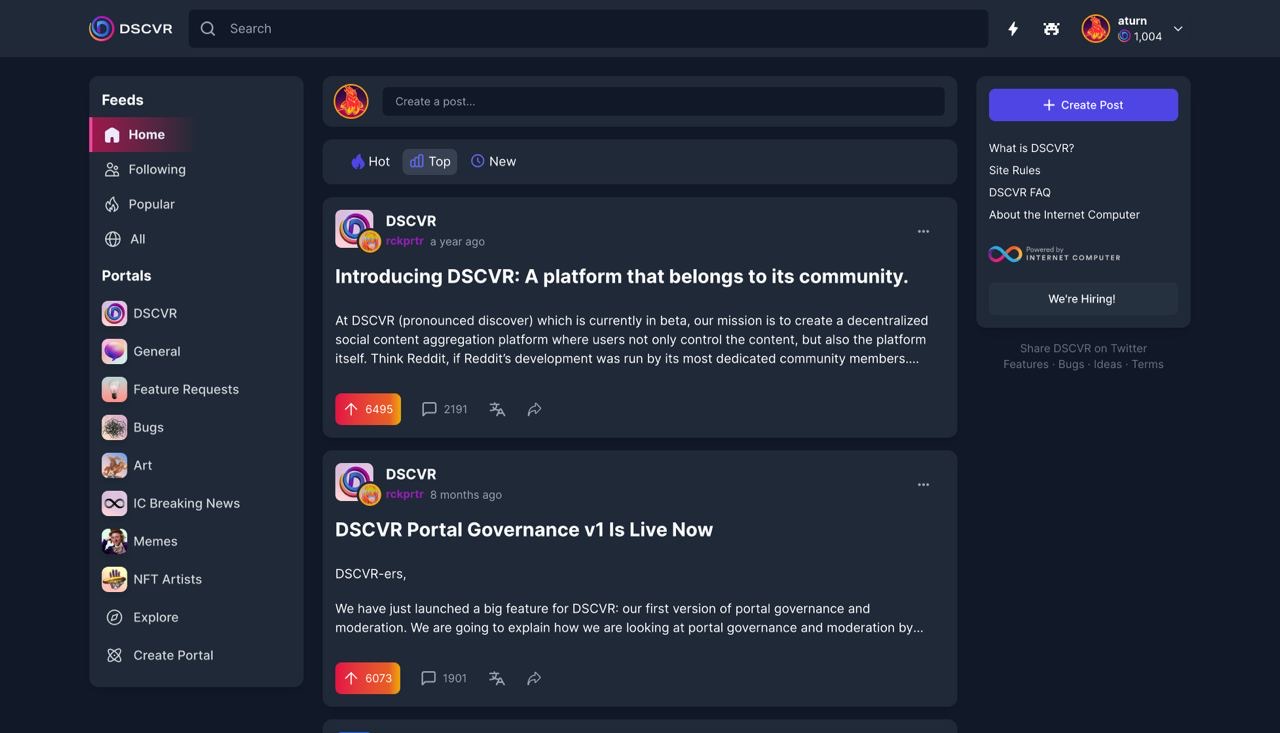The race to build a social media platform on the blockchain – TechCrunch
It’s easy to be skeptical of the big social media giants – they typically sell user data to advertisers and have been mired in controversy for their approach to content moderation. Web3 proponents believe they can build a new system entirely that bypasses the concentrated power of platforms—a decentralized social media (DeSo) ecosystem where users ideally have more ownership over the content they create.
DSCVR, a blockchain-based social network built on Dfinity’s Internet Computer protocol, has joined the race to build a scalable DeSo platform with $9 million in seed funding led by Polychain Capital. Other participants in the round include Upfront Ventures, Tomahawk VC, Fyrfly Venture Partners, Shima Capital and Bertelsmann Digital Media Investments (BDMI), according to the company.
It is a competitive space with many startups and large companies fighting to build a network that benefits users. Earlier this month, ex-Coinbase employee Dan Romero secured $30 million led by a16z to develop Farcaster, a DeSo protocol that allows users to move their social identity across different apps. TechCrunch covered another startup startup, Primitives, which raised a $4 million round in May for its own Solana-based DeSo network. And Big Tech is in on the game, too — Twitter is funding an offshoot of their service called BlueSky, an open-source DeSo project founded in 2019 that hasn’t gone live, but is publicly experimenting with the development process.
DSCVR, in turn, hosts token-gated communities called “portals”, where users must own a certain NFT in order to participate. The communities help NFT projects build hype by sending digital assets to DSCVR users, co-founder and CEO Rick Porter told TechCrunch in an interview.

A picture of the home feed on DSCVR Image credit: DSCVR
“People need distribution for their NFTs. They want to achieve liquidity for their NFTs, and they need real people, not robots, to own those NFTs and potentially hold them themselves. So we become a distribution channel for NFTs such that [people seeking distribution] have a collection of 10,000 units and they can release 1,000 to our top users,” Porter said.
DSCVR has onboarded over 100,000 users, according to Porter, and has generated “millions of dollars” in NFT rewards for those users through the airdrop rewards mechanism. What sets it apart from other DeSo platforms, Porter said, is in its goal to build a bridge between web2 and web3.
“How do we take a typical web2 user who might not be comfortable with web3 and introduce them to web3 technology and give them the absolutely authentic and truly native web3 experience without making huge sacrifices to bridge that gap? That is one of the differences that we’re looking at is that we’re trying to increase the amount of perspective or increase the amount of fidelity that can be given out of a web3 experience,” said Porter.
To that end, Porter noted, connecting an external wallet through MetaMask or another provider to a social profile can be complicated, especially for those less familiar with web3 technology. DSCVR’s answer lies in the native wallet, which Porter says is accessible to users on the platform and doesn’t require them to hand over control of their own keys.
The question DSCVR is trying to answer, he added, is how to provide users with a web3-native, decentralized experience with “little or no sacrifice.” It is interesting that the company chose to build on the Internet Data Protocol instead of Ethereum, the most popular smart contract chain. Porter said he made that decision after meeting Dfinity’s president and chief scientist, Dominic Williams, while Porter was working on a blockchain-based smart contract project as a consultant at BCG.
After becoming involved with Dfinity while the protocol itself was being developed, Porter decided after a few years to leave his role at BCG and start working full-time with Dfinity. His first project was building a message board on the protocol, which he said exposed him to the need for web3 community and inspired his decision to build a social network.
The Internet computing ecosystem has also seen its own controversies. Dfinity is facing a class action lawsuit alleging that it illegally sold its tokens as unregistered securities. The lawsuit also named Polychain and a16z as defendants, as both were early backers of Dfinity. Last month, Dfinity found itself on the other side of the equation when it filed a lawsuit against two New York Times Reporters, Andrew Ross Sorkin and Ephrat Livni, alleged that they engaged in defamation of Dfinity.
When asked why Porter thought the Internet computer was the best choice to build his social platform, he said: “It feels like I’m developing on something like AWS, but it’s completely decentralized, right? I have upgradable smart contracts, so I can actually make changes and incrementally upgrade my application while still having everything verified and on-chain and traceable.”
Still, communicating directly with customers is a necessity when building a DeSo platform, Porter said.
“The difficult part is in web3, you don’t get much analysis about the user. You really need to communicate with your user base to really understand, what are the problems they face? And what are the friction points? If any of the users are facing a problem, there is no notification to us,” said Porter. “We have to hope that either they post on our page, or they have a friend post on our page to inform us of the issues they’re facing, and then we can usually jump in and solve it.”


